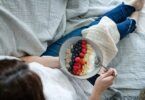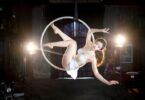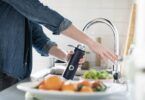Proper nutrition plays a crucial role in optimizing performance before competition. Fueling your body with the right foods can enhance energy levels, focus, and stamina. In this article, we will explore essential nutrition tips to help you make informed choices about what to eat before a competition.
What to eat before a performance
The meal should aim at:
- Avoid feeling hunger, dizziness or fatigue during the game.
- Minimization of gastrointestinal distress during the game.
- Providing the necessary nutrients and necessary carbohydrates, the main fuel, namely, the body.
- Adequate hydration of the body.
Due to the fact that exercising with a full stomach is undesirable, the meal should be consumed at least 2 to 3 hours before the start of the competition or workout.
In particular, in cases of Aerialists or Pole dancers, because the posture during the exercise often favors the sway of the contents of the stomach to the mouth (e.g. vertical), makes exercise with a full stomach prohibitive.
Paying attention to the exact time of the consumption of the meal in conjunction with the ingredients of the meal will help fulfil the second goal.
It should also be noted that the meal before the competition or the workout does not need to be an additional meal in the day. For example, if the competition is at 11 this morning, the athlete can consume earlier only breakfast which can be slightly modified, so that it covers the requirements of a pre-competition meal somewhere at 8:30 AM.
What should a pre-performance meal include?
A pre-performance meal should:
- have sufficient carbohydrates and contain a small amount of protein.
- It is not recommended to have foods which are rich in fat or fibre because they can slow down digestion.
- To be relatively rich in water.
- Trying new food should be left for another more appropriate time.
It should be noted that the energy which is given by consuming a pre-performance meal does not obey any specific rule, but obviously meals too low in calories ( <250 kcals) would fail to meet the 3rd goal.
Sometimes the pre-performance meal may coincide with the lunch (e.g. if the competition is at 6 in the afternoon), and therefore, it will be increased in calories. In this case, care should be taken by abstaining from food for at least 3 hours.
Ideas of what to eat before a competition of approximately 500 kcals are presented below:
- 1 Glass of juice, 2 slices of white bread 2 slices of lean yellow cheese and 2 boiled eggs (1 yolk)
- 1 Glass of milk 1.5% with a squashed banana, 3 toast slices of bread and 60g tuna in water
- 200g of yoghurt 2% with 40g cereals, 1 slice of bread with 1 tablespoon honey
Apart from the pre-competition meal, some sports require food intake (mainly carbohydrates) shortly before or during the course of the game, but this mainly concerns prolonged competitions of moderate or high intensity and it rarely has to do with athletes involved in aerial sports or Pole dancing.
By following a well-planned pre-competition meal, you can provide your body with the necessary nutrients to perform at your best. Remember to experiment with different foods and timing to find what works best for you individually. A balanced and tailored approach to nutrition will help you maximize your performance potential.








